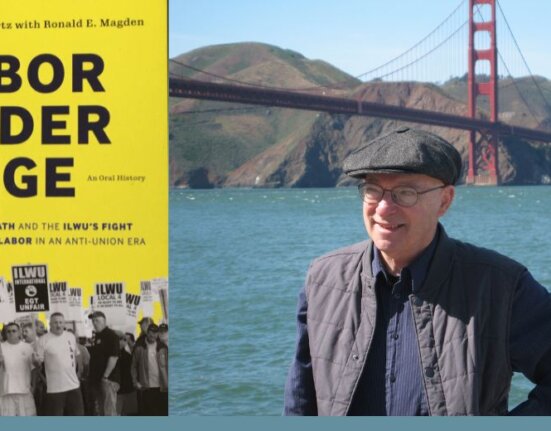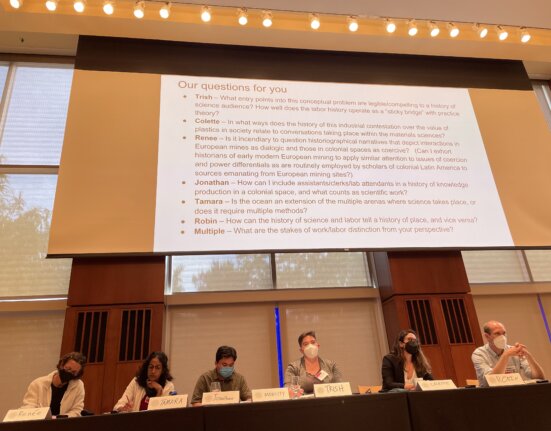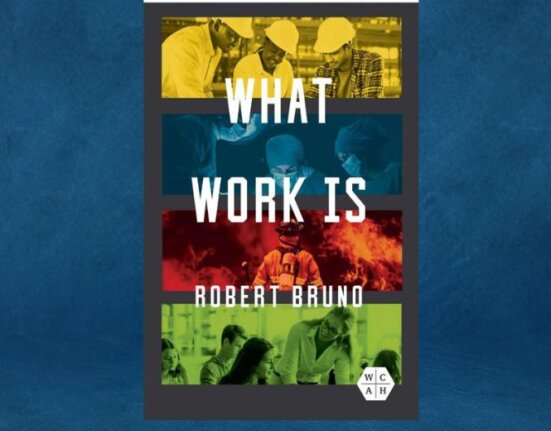October 31, 2017 will mark the 500th anniversary of Martin Luther’s defiant act of protest against the Church. What does this distant anniversary of a theological controversy have to do with the labor and class issues of our time? The apocryphal image of Luther with a mallet and a manifesto dramatizes his world-changing challenge to the hierarchy of the Church. He emphasized that salvation from sin is through God’s grace, faith not human effort, the word of God not fallible priests or a corrupt Church bent on benefitting from the sale of indulgences.
Luther’s challenge to the Church’s monopolization of access to God was not an arcane theological matter. It was a “call out” to the working people of his day. He reminded his readers that God calls all people, priest and printer alike, to their vocation, to their calling. As he wrote three years after the events at Wittenberg, “priests, bishops, and popes, possess no further or greater dignity than other Christians.” For Luther,
a shoemaker, a smith, a farmer, each has his manual occupation and work; and yet, at the same time, all are eligible to act as priests and bishops. Every one of them in his occupation or handicraft ought to be useful to his fellows, and serve them in such a way that the various trades are all directed to the best advantage of the community.
In short, workers are just as worthy as priests in God’s heavenly economy. While not as radical a reformer as some later rebels against what we now know as the Roman Catholic Church, Luther’s appreciation of the trades, working people, and his theological defense for the equality of all before God remain worthy of commemoration.
Yet the father of Lutheranism was not the father of democracy nor the first labor organizer. Luther’s notion of vocation did not allow for movement from the fixed station that God created, as he understood it, for each one of us. While some have identified Luther and fellow reformer John Calvin as laying the groundwork for capitalism, Max Weber argued a century ago against the “foolish and doctrinaire thesis” that “capitalism as an economic system is a creation of the Reformation.” Weber further cautioned against transplanting a theological notion of calling to a modern work context. As he noted, “The Puritan wanted to work in a calling, we are forced to do so.” The iron cage keeps us in our place. This cage is Weber’s way of showing how a Protestant ethic can be distorted in contemporary workplace relationships. This ethic included, for Weber, a valuation of work, thrift, industriousness, self-control, temperance and fortitude. On the surface, such values seem unassailable. A “Protestant work ethic” that emphasizes the value of hard work, a phrase often but mistakenly attributed to Weber, is usually paired with giving a fair’s day work for a fair day’s pay.
Of course, many working people understand that a “calling” is often a proxy for exploitation and a means to extort more labor. Whether one calls it a Protestant ethic, a Protestant work ethic, or simply a work ethic, this five-century-old legacy of equating work with divine purpose also afflicts laborers in an increasing number of professions. Precarious and uncertain now, professional positions once thought to be secure, valued, and respected are beset with unpredictable schedules, low pay, and no benefits. Adjunct professors know this new mode of working-class life all too well. Professionals who inhabit the aura of a calling and value their work accordingly are all the more subject to manipulation and exploitation. For instance, the care for other human beings would seem to be free of at least some aspects of capital. But the intensification of the work pace in the professions coupled with expanded managerial and fiduciary oversight creates a new work-world long familiar to other workers: maximization of return on investment regardless of the damage to other human beings.
The idea that one should have a “good work ethic” is ingrained in the American psyche. Bill Clinton stated it well:
We’ll think of the faith of our parents that was instilled in us here in America, the idea that if you work hard and play by the rules, you’ll be rewarded with a good life for yourself and a better chance for your children. Filled with that faith, generations of Americans have worked long hours on their jobs and passed along powerful dreams to their sons and daughters. Many of us can remember our own parents working long hours on their jobs and then coming home and helping us with our homework. The American dream has always been a better life for people who are willing to work for it.
The question is what to do when the other side plays by a competing set of rules inherently structured to undermine workers who have faith in this work ethic, this American dream? That is, in workplaces shaped by capitalism, hierarchies are created (just as the Church generated them in Luther’s day) in which some people have more value because of their rung on the corporate ladder. Be it the Church or capital, both formations bend people to their logic and will.
In the weeks leading up to Reformation Day, we should ponder the theological framework that has shaped centuries of thinking about the meaning of work. We can no longer insist that work be re-enchanted with the aura of a “calling” or the halo of being co-workers in God’s creation. An ethic that simply values diligence and work as signs of obedience to God’s created intent is a dangerous morality.
Instead of a work ethic that draws upon the horizontal relationship between workers and managers, a labor ethic must be developed that sustains relationships of lateral solidarity between workers. A labor ethic does not value industriousness for its own sake nor does it prize a fair day’s work for a fair day’s pay. Rather, a labor ethic attempts to shape the content and pace of one’s work even as it seeks to maximize the benefits from one’s labor. It operates as resistance within workplaces shaped by capital and seeks to transcend those workplaces with cooperatives and other forms of worker ownership and self-determination. A labor ethic is a distant descendant of Luther’s valuation of earthly work. Given the effects of capitalism on human labor, the cobbler and the smith, once relatively free to practice their calling are now swept up or away by tsunamic forces (pace Marx). Above all, the priority in a labor ethic is always about workers who must practice and investigate the concrete meaning and practice of solidarity among themselves.
A labor ethic is meant to be a re-formation of the reformation ideal of valuing one’s work. In a post-secular age in which neither religion nor secularism has unquestioned primacy, the meaning of work is always up for interpretation. Some find work to be a source of meaning as such, others find work to be meaningful only insofar as God wills it as co-creative work to redeem a sinful world. One legacy of the Reformation is that reform can never be a final action but is always a process. A labor ethic urges on that process through its essential element of protest and contestation to turn the cage of work into a realm of freedom and self-determination. A labor ethic retains the legacy of attention to human work but without the theological context. But this ethic is mindful that a humble monk formulated a theology of reform. Now, reform must be in the hands of workers, believers and unbelievers alike. They may even decide that reform is not enough.
Thus, a labor ethic must always insist on one word from the Reformation however. A labor ethic must cultivate protest and protesting. Like the Protestants of old in the heady days of the Reformation, workers who wish to cultivate a labor ethic will have to be permanently engaged in protest, the “emphatic declaration and affirmation” (Oxford English Dictionary) of their interests. Their lives and their livelihoods depend upon it – word and deed unified for reform or revolution. Here they must stand, they can do no other.







